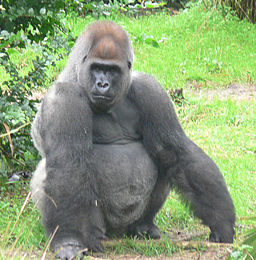
When people are confronted by danger, they can accomplish amazing things. Yet, when we need to take action, sometimes we have to lie to ourselves. The inner primate, that instinctive part of us that usually lies buried, might not recognize the same signs of “danger” as the abstract part of the mind.
When we’re in a situation that truly and obviously threatens our lives, everything comes into focus. The sympathetic nervous system, which governs things like adrenaline release, takes charge and gets us moving–often with “fight or flight” responses.
If we find ourselves in a burning house, confronted by some danger on the street, or see someone we care about being threatened, it kicks in. Abstract thought melts away, and doubt leaves us. It gives us power we would not otherwise have.
Confronting Complexity
There are times when we confront dangers that aren’t so simple. Sometimes we need to rally the whole self to win some abstract competition, not just survive. When we’re faced with a tough situation, how do we call out the “inner primate”? How do we access that instinctive part of the mind?
The simple answer is that we lie to it. We convince ourselves, deeply and emotionally, that we’re fighting for our lives, even when that is not strictly true. We get ourselves worked up by worrying. The “this and that” of abstract thought melts away, and we become focused on a simpler world.
We can convince ourselves, through thought, that we are “fighting for our lives.” This is a way of self-justifying “antisocial,” or more accurately, “culturally questionable” behavior. Worry isn’t just something that distracts us and wastes our energy; sometimes it’s a way of working ourselves up to action.
That primate part of the mind isn’t too interested in details like the way that others who are not “our people” feel. It’s not that the primate doesn’t have feelings, it’s just that it doesn’t usually recognize people outside of our own group as anything more than competitors.
In the abstract, maybe we sometimes feel that everyone should get along. But in specific, such as when we are struggling for precedence within a group, or keeping ourselves safe, other considerations become more important.
Maybe this inner primate isn’t the most rational part of our mind, but it does have its uses. It’s also important to recognize not only its power, but its limitations.